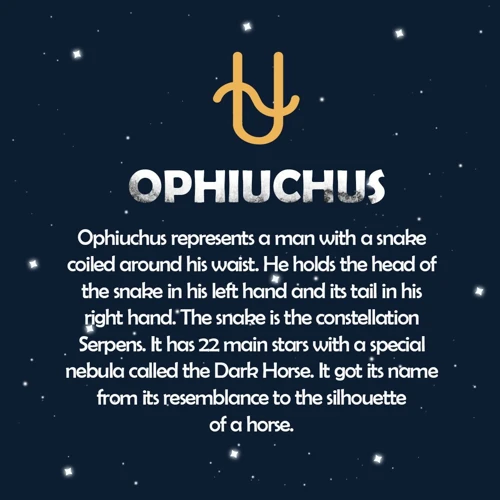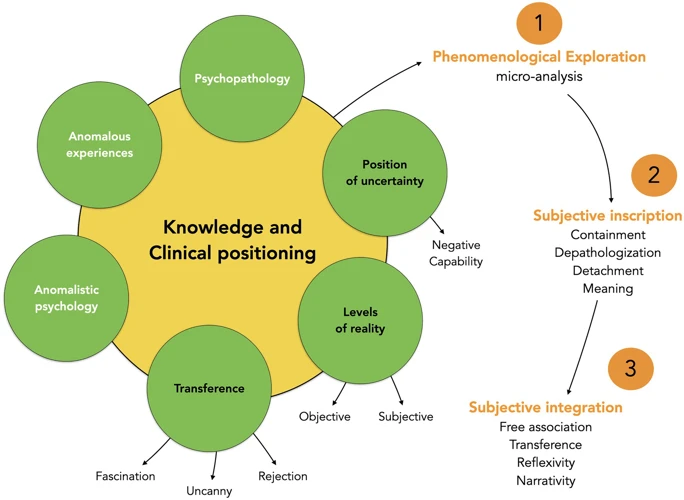Have you ever wondered what the stars reveal about your personality and character traits? The age-old debate between astrology and astrology has captivated the human mind for centuries. While astrology is often dismissed as pseudoscience, the study of zodiac constellations and their influence on personal characteristics continues to intrigue and amaze. In this article, we will delve into the fascinating world of astrology and astronomy, exploring the origins of zodiac constellations and uncovering the personality traits associated with each zodiac sign. Whether you’re a fiery Aries or an intuitive Pisces, join us on this cosmic journey to uncover the secrets that the stars hold.
Contents
- Understanding Astrology and Astronomy
- Origins of Zodiac Constellations
-
Exploring Zodiac Signs and Personality Traits
- Aries (March 21 – April 19)
- Taurus (April 20 – May 20)
- Gemini (May 21 – June 20)
- Cancer (June 21 – July 22)
- Leo (July 23 – August 22)
- Virgo (August 23 – September 22)
- Libra (September 23 – October 22)
- Scorpio (October 23 – November 21)
- Sagittarius (November 22 – December 21)
- Capricorn (December 22 – January 19)
- Aquarius (January 20 – February 18)
- Pisces (February 19 – March 20)
- Astrology and Personalities: Myth or Reality?
- Scientific Approach: Personality Psychology
- Conclusion
-
Frequently Asked Questions
- What is the difference between astrology and astronomy?
- Can astrology predict future events?
- How are zodiac signs determined in astrology?
- Do all cultures have the same zodiac signs?
- Is there a 13th zodiac sign?
- Is astrology considered a science?
- Can astrology determine compatibility between two individuals?
- Does astronomy study the influence of celestial bodies on human lives?
- How has astronomy contributed to astrology?
- Is there scientific evidence supporting astrology?
- References
-
Frequently Asked Questions
- Can astrology really reveal information about personalities?
- What is the difference between astrology and astronomy?
- How were the zodiac constellations identified?
- Can the zodiac signs accurately describe personality traits?
- Are zodiac signs and personality traits the same for everyone born under the same sign?
- What is the significance of the zodiac sign Aries?
- What traits are commonly associated with the zodiac sign Cancer?
- Do zodiac signs determine compatibility in relationships?
- Can astrology be used to predict the future?
- What are some key differences between astrology and personality psychology?
- References
- Read More
Understanding Astrology and Astronomy

Astrology and astronomy are often intertwined, but they are distinct disciplines with different approaches and goals. Astrology is a belief system that posits a connection between celestial events and human personality traits and life events. It encompasses the practice of interpreting the positions and movements of celestial bodies to create horoscopes and make predictions about individuals’ lives. On the other hand, astronomy is a scientific study that focuses on understanding the universe and celestial objects using observation and data analysis. It involves the examination of stars, planets, galaxies, and other celestial phenomena, aiming to unravel the mysteries of the cosmos. While astrology is rooted in ancient mythology and cultural beliefs, astronomy relies on empirical evidence and the scientific method to unravel the mysteries of the universe. While astrology may fascinate people with its notions of zodiac signs and personalized horoscopes, astronomy seeks to uncover the underlying scientific principles governing the cosmos. So, while astrology offers a lens through which individuals may perceive themselves more clearly, astronomy provides a deeper understanding of the vastness and complexity of the universe we exist in.
Astrology Explained
Astrology, as a study, aims to interpret the influence of celestial bodies on human behavior and personality traits. It is based on the belief that the relative positions and movements of celestial bodies at the time of a person’s birth can provide insight into their character, relationships, and future events. Astrologers often refer to the twelve zodiac signs, each associated with specific dates and the corresponding constellation in the sky. These zodiac signs are divided into four elements: fire, earth, air, and water, which further influence the personality traits associated with each sign. For example, fire signs such as Aries, Leo, and Sagittarius are often described as passionate and dynamic, while earth signs like Taurus, Virgo, and Capricorn are seen as practical and grounded. Air signs, including Gemini, Libra, and Aquarius, are characterized by intellect and communication skills, while water signs like Cancer, Scorpio, and Pisces are known for their emotional depth and intuition. Astrology also explores the concept of horoscopes, which are personalized predictions based on an individual’s birth chart. This chart includes the positions of the sun, moon, and planets at the time of birth, providing astrologers with additional insights into an individual’s personality and potential life events. Though there is ongoing debate about the scientific validity of astrology, its influence and popularity endure, with many individuals finding comfort and guidance in the interpretations offered by astrologers. Whether one sees astrology as a tool for self-reflection or a glimpse into the cosmic forces at play, it continues to captivate and intrigue people from all walks of life.
Astronomy Explained
Astronomy, the scientific study of celestial objects and phenomena, is a field that seeks to understand the vastness of the universe and the objects within it. Here are some key aspects of astronomy explained:
1. Observational Techniques: Astronomers use a variety of tools and techniques to observe and collect data about celestial objects. These include telescopes, radio antennas, spectrometers, and space-based observatories like the Hubble Space Telescope. By studying the light and radiation emitted by stars, galaxies, and other celestial bodies, astronomers can gather information about their composition, temperature, and distance from Earth.
2. Stellar Evolution: Astronomy explores the life cycles of stars, from their formation within giant molecular clouds to their eventual demise. This knowledge is gained through the examination of star clusters, supernovae, and the behavior of variable stars. By observing these phenomena, astronomers can uncover the processes that govern the birth, evolution, and death of stars.
3. Galaxy Formation and Structure: Astronomers study the formation and evolution of galaxies, which are large systems of stars, gas, and dust bound together by gravity. Through observations, astronomers have learned about different types of galaxies, such as spiral, elliptical, and irregular. They investigate the mechanisms that lead to galaxy formation, the distribution of matter within galaxies, and the supermassive black holes that reside at their centers.
4. Cosmology and the Big Bang Theory: Astronomy delves into the study of the universe as a whole. Cosmologists seek to understand its origin, evolution, and ultimate fate. The Big Bang Theory, supported by extensive observational evidence, posits that the universe originated from a hot, dense, and infinitely small singularity about 13.8 billion years ago. Through the study of cosmic microwave background radiation and redshift, scientists have gained valuable insights into the composition and expansion of the universe.
5. Exoplanets and the Search for Life: One of the most exciting areas of modern astronomy is the discovery and study of exoplanets, which are planets outside of our solar system. With the development of advanced telescopes, astronomers have detected thousands of exoplanets, some of which may have conditions suitable for life. The search for potentially habitable planets and the exploration of their atmospheres is a crucial aspect of understanding our place in the universe.
By exploring these and many other fascinating areas, astronomy provides a scientific understanding of the cosmos, uncovering the mysteries of celestial objects and their interactions. It offers a deeper insight into the vastness and complexity of the universe, further cementing its position as a scientific discipline rooted in observation, evidence, and exploration.
Origins of Zodiac Constellations

The origins of zodiac constellations can be traced back thousands of years to ancient civilizations that observed and revered the night sky. Ancient astrology played a significant role in the development of zodiac signs and their associations with human personality traits. The Babylonians, Egyptians, and Greeks were among the cultures that contributed to the formation of the zodiac as we know it today. They observed patterns in the stars and assigned specific constellations to represent different stages of the annual journey of the Sun. It was believed that these constellations held influence over various aspects of life. However, the concept of zodiac constellations underwent refinements over time, with the addition of the thirteenth sign, Ophiuchus, in modern astrology, causing controversy and debate among astrologers. To explore more about this peculiar paradox, you can read our article on the Ophiuchus paradox. Regardless of any additions or revisions, the zodiac constellations continue to fascinate and captivate, reminding us of humanity’s enduring fascination with the stars and their connection to our lives.
Ancient Astrology and Zodiac Signs
Ancient astrology and zodiac signs have their roots in the rich mythology and cultural beliefs of civilizations that existed thousands of years ago. In ancient times, people looked up at the night sky and observed patterns formed by the stars. These patterns eventually became associated with various figures from mythology, and the concept of zodiac signs was born. The zodiac signs we recognize today, such as Aries, Taurus, Gemini, and the rest, can be traced back to ancient civilizations like the Babylonians, Egyptians, and Greeks. The Babylonians, for instance, divided the ecliptic, the apparent path of the Sun in the sky, into twelve equal parts, each named after a constellation they associated with their gods. This division became the foundation of the zodiac system. Similarly, the Egyptians also linked zodiac symbols to their deities and used them to predict the future. In Greek mythology, the zodiac signs were given human-like qualities and associated with the twelve labors of the hero Hercules. Over time, these ancient associations and beliefs evolved into what we recognize as zodiac signs today. They have become an integral part of our culture and continue to capture our imagination. So, when you identify yourself as a particular zodiac sign, you are tapping into an ancient tradition that has been passed down through countless generations. To learn more about the fascinating myths and stories behind the zodiac signs, you can explore Celtic mythology and its creatureshere.
The Role of Astronomy in Identifying Constellations
Astronomy plays a crucial role in identifying constellations and understanding their significance in astrology. Through careful observation and analysis, astronomers have helped map out the night sky, pinpointing the positions of stars and grouping them into recognizable patterns known as constellations. These patterns have been identified and named based on their resemblance to various objects, animals, or mythological figures. By studying the celestial bodies and their movements, astronomers have provided a scientific basis for the existence of constellations across different cultures and civilizations. Advancements in technology, such as telescopes and photography, have allowed astronomers to accurately measure the brightness, distance, and spectral characteristics of stars within constellations. This knowledge has enabled astrologers to associate specific personality traits and characteristics with different zodiac signs. Although astronomy and astrology have different objectives, the collaboration between the two fields has enhanced our understanding of the night sky and the influence of cosmic phenomena on human lives. For instance, alignments of planets and comets have been linked to significant historical events, such as the impact of asteroids and comets on Earth’s history. Through the study of celestial bodies, both astronomers and astrologers continue to unravel the mysteries of the universe and explore the connections between the cosmos and our personal identities.
Exploring Zodiac Signs and Personality Traits

The zodiac signs are a central component of astrology, believed to correspond to specific personality traits and characteristics. Let’s take a journey through the zodiac constellations and explore the fascinating world of astrology. Each sign is associated with a specific period and has its own distinguishing attributes. Aries, the first sign of the zodiac, is known for its assertive and independent nature. Taurus, the second sign, is often characterized as patient and reliable. Gemini, the third sign, represents adaptability and intellectual curiosity. Cancer, the fourth sign, embodies emotional sensitivity and nurturing tendencies. Leo, the fifth sign, exudes confidence and charisma. Virgo, the sixth sign, is known for its analytical and practical approach. Libra, the seventh sign, values harmony and fairness. Scorpio, the eighth sign, is often associated with intensity and passion. Sagittarius, the ninth sign, embodies a love for adventure and freedom. Capricorn, the tenth sign, represents ambition and responsibility. Aquarius, the eleventh sign, is known for its humanitarian nature and unique perspective. Finally, Pisces, the twelfth sign, exhibits empathy and creativity. These descriptions only scratch the surface of the complex interplay between zodiac signs and personalities. Whether you believe in the power of astrology or approach it with skepticism, exploring the characteristics associated with each zodiac sign can be an enlightening and introspective experience.
Aries (March 21 – April 19)
Aries, the first zodiac sign, spans from March 21 to April 19. This fire sign is known for its boldness, leadership qualities, and assertive nature. Aries individuals are often seen as passionate and driven, with a natural confidence that propels them towards success in various aspects of life. They are ambitious and determined, never one to shy away from a challenge. Aries is ruled by Mars, the planet of energy and action, further amplifying their fiery nature. With their competitive spirit, Aries is always up for a friendly competition and excels in roles that require quick decision-making and a proactive approach. Despite their boldness, Aries individuals also have a caring and protective side, often looking out for their loved ones and coming to their defense. However, their impulsive nature can sometimes lead to rash decisions and a tendency to act before they think. It’s important for Aries individuals to find a balance between their passion and impulsiveness, as well as take time to consider the consequences of their actions. Aries’ energetic and confident nature makes them natural born leaders and trailblazers in their chosen paths.
Taurus (April 20 – May 20)
Taurus, born between April 20 and May 20, is the second sign of the zodiac. People born under this earth sign are known for their strong and reliable nature. Taurus individuals are often grounded, practical, and hardworking, making them excellent team members and dependable friends. They have a deep appreciation for beauty and are often drawn to art, music, and nature. Taurus individuals also possess a strong sense of determination and are known for their perseverance in pursuing their goals. They are often associated with traits such as stubbornness and possessiveness, but these qualities stem from their unwavering loyalty and commitment to their loved ones. Taurus individuals are drawn to stability and security, and they strive to create a comfortable and harmonious environment around them. They are also known for their love of indulgence, enjoying the finer things in life and savoring the sensual pleasures. It is important for Taurus individuals to find a balance between their desire for stability and their need for adventure and spontaneity. By embracing change and remaining open to new experiences, Taurus individuals can fully tap into their potential and lead fulfilling lives. So, if you are a Taurus or have a Taurus in your life, you can appreciate their steadfast and reliable nature, while also encouraging them to embrace new opportunities and ventures.
Gemini (May 21 – June 20)
Gemini, the third sign of the zodiac, spans from May 21 to June 20. Individuals born under the sign of Gemini are known for their dynamic and diverse personalities. Symbolized by the Twins, Gemini is associated with duality and versatility. Geminis are often characterized as sociable, curious, and intellectually inclined. They have a natural gift for communication and enjoy engaging in stimulating conversations with others. Geminis have a quick wit and a playful sense of humor, which makes them excellent entertainers and conversationalists. They thrive in social settings and are adept at adapting to various social situations. Intellectual stimulation is vital for Geminis, and they thrive in careers that allow them to use their analytical and communicative skills. Geminis are also known for being adaptable and open-minded, which enables them to embrace change and new experiences with enthusiasm. However, Geminis may also exhibit a dual nature, as represented by their symbol. They can be indecisive and struggle with commitment, often experiencing a constant tug-of-war between conflicting emotions and desires. Despite this, Geminis are generally regarded as lively and charismatic individuals who bring a sense of excitement and liveliness to any situation. To learn more about the impact of asteroids and comets on Earth’s history, check out our article on the subject.
Cancer (June 21 – July 22)
Cancer is the fourth sign of the zodiac, representing those born between June 21 and July 22. People born under the Cancer sign are known for their strong emotional nature and intuitive abilities. Here are some key personality traits associated with Cancer:
1. Emotional and Empathetic: Cancer individuals are highly sensitive and in tune with their emotions. They have a deep understanding of others’ feelings and can easily empathize with those around them.
2. Loyal and Nurturing: Cancerians are fiercely loyal and dedicated to their loved ones. They prioritize family and relationships, often playing the role of caregivers and nurturers. Their nurturing nature extends beyond family, as they also become excellent friends and support systems to those in need.
3. Intuitive and Perceptive: Cancer individuals possess a strong intuition that guides them in decision-making and understanding others. They have a keen perception of the emotions and needs of those around them, making them great mediators and peacemakers.
4. Protective and Cautious: Cancerians have a natural inclination to protect themselves and their loved ones. They can be cautious and guarded until they feel safe and secure. This protective nature often stems from their deep emotional investment in relationships.
5. Imaginative and Creative: Cancer individuals have a rich imagination and a natural creative flair. They enjoy artistic pursuits, whether it be painting, writing, or any other form of self-expression. Their creativity is often fueled by their emotional depth.
6. Homebody and Domestic: Cancerians find great comfort in the home environment. They enjoy creating a cozy and nurturing space for themselves and their loved ones. Home and family hold great importance to them, and they thrive in a peaceful and harmonious domestic setting.
Cancerians are known for their caring and compassionate nature. They value emotional connections and seek security and stability in all aspects of life. While they may be guarded at times, their vulnerability and empathy make them invaluable friends and partners.
Leo (July 23 – August 22)
If you were born between July 23 and August 22, you fall under the zodiac sign of Leo. Represented by the mighty Lion, Leos are known for their boldness, confidence, and natural leadership qualities. Just as the lion rules over the animal kingdom, Leos tend to have a magnetic presence and possess a regal aura. They thrive in the spotlight and are often the center of attention in social gatherings. Leos have a strong desire for recognition and admiration, and they are driven to achieve success and leave a lasting impact on the world. Their fiery and passionate nature makes them natural-born leaders who excel in positions of authority. Leos have a creative streak and enjoy expressing themselves through various forms of art, such as acting, writing, or music. With their warm and generous hearts, they are fiercely loyal to their loved ones and go above and beyond to protect and support them. While Leos may sometimes come across as self-centered or egotistical, their natural charisma and charm win over those around them. However, Leos should be mindful of their ego and temper any selfish tendencies in order to maintain harmonious relationships with others. If you have a Leo in your life, you can expect a loyal and dynamic friend who will bring passion and enthusiasm to everything they do.
Virgo (August 23 – September 22)
Virgo, the sixth astrological sign in the zodiac, spans from August 23 to September 22. Symbolized by the maiden and associated with the element of earth, Virgos are known for their practicality, attention to detail, and analytical nature. Virgos are often perfectionists, constantly striving for excellence in all areas of their lives. They have a keen eye for spotting flaws and possess a remarkable ability to organize and systematize. Their meticulous nature makes them excellent problem-solvers and well-suited for tasks that require precision and accuracy. Virgos are deeply practical individuals who value structure and order, making them reliable and efficient in both personal and professional settings. While they may come across as reserved or shy, Virgos have a strong sense of responsibility and demonstrate unwavering loyalty to their loved ones. However, their critical nature can sometimes lead them to be overly self-critical and judgmental of others. Underneath their practical exterior, Virgos possess a sensitive and nurturing side, always willing to lend a helping hand to those in need. As an earth sign, Virgos are grounded and may find solace in nature or physical activities that allow them to connect with their senses. This sign is ruled by Mercury, which grants them excellent communication skills and a love for intellectual pursuits. In love and relationships, Virgos seek partners who appreciate their attention to detail and value their loyalty and dependability. They may appear reserved, but once trust is established, they can be incredibly devoted and supportive partners. Virgos are known for their reliability, practicality, and analytical mindset, attributes that make them invaluable in both personal and professional spheres of life.
Libra (September 23 – October 22)
Libra, the seventh sign of the zodiac, spans from September 23rd to October 22nd. Symbolized by the Scales, Libra is known for its sense of balance and harmony. Individuals born under this sign are often cooperative, diplomatic, and just. They have a natural ability to see both sides of an argument and strive for fairness in all aspects of life. Libras are known for their keen sense of aesthetics and appreciation for beauty, making them great artists and creative individuals. They have a strong desire for companionship and value close relationships. Libras are sociable and charming, making them excellent communicators. However, they can sometimes be indecisive, as their desire for balance may lead to difficulty in making choices. Libras value peace and avoid conflicts whenever possible, often acting as peacemakers in relationships and social settings. Libras are known for their diplomatic nature, their love for beauty and justice, and their ability to create harmonious environments.
Scorpio (October 23 – November 21)
Scorpio, the eighth astrological sign of the zodiac, is known for its intensity, passion, and magnetism. Those born between October 23 and November 21 fall under the sign of Scorpio. Individuals with this sun sign are often known for their deep emotions and their ability to keep secrets. Scorpios have a reputation for being mysterious and possessing an innate sense of power. They tend to be highly focused individuals who are determined to achieve their goals. Scorpios are known for their loyalty and devotion to those they care about, and they can be fiercely protective of their loved ones. However, they also have a tendency to be possessive and jealous. As water signs, Scorpios are highly intuitive and perceptive, often able to pick up on subtle cues and emotions that others may overlook. Despite their keen insights, Scorpios can also be prone to being manipulative and controlling, using their understanding of others to their advantage. In relationships, Scorpios seek deep emotional connections and desire a partner who can match their intensity and passion. At their best, Scorpios are loyal, passionate, and courageous individuals who are not afraid to delve into the depths of their emotions. However, when they are at their worst, they can become vengeful and possessive. It is important for Scorpios to channel their intense emotions in healthy ways and to learn to trust and communicate openly with others.
Sagittarius (November 22 – December 21)
Sagittarius is the zodiac sign associated with individuals born between November 22 and December 21. Ruled by the element of fire, people born under this sign are known for their adventurous and outgoing nature. They possess a strong sense of wanderlust and are always seeking new experiences and knowledge. Sagittarians are natural explorers, both in the physical world and the realm of ideas. They are open-minded and enjoy engaging in philosophical discussions and debates. With their optimistic and enthusiastic outlook on life, Sagittarians have a contagious energy that draws others towards them. They are independent and value their freedom, often craving a sense of independence and the ability to chart their own path. This sign is symbolized by the Archer, representing their desire to aim for their goals and ambitions with precision and focus. Sagittarians are known for their honesty and straightforwardness, which can sometimes come across as blunt or tactless. However, their intentions are always genuine and they value truthfulness and integrity. In relationships, Sagittarians are passionate and loyal partners who value both emotional connection and intellectual stimulation. Sagittarius individuals are known for their zest for life, their love for adventure, and their optimistic outlook that inspires those around them.
Capricorn (December 22 – January 19)
Capricorn, the tenth sign of the zodiac, is symbolized by the mountain goat. People born between December 22 and January 19 fall under this earth sign. Capricorns are known for their ambitious nature, determination, and practicality. They possess a strong work ethic and strive for success in their careers. Their disciplined approach to life helps them overcome obstacles and achieve their goals. Capricorns are highly organized and responsible individuals who excel in leadership roles. They are reliable and trustworthy, making them sought-after team members. With their keen eye for detail, Capricorns pay great attention to planning and execution, ensuring that projects are completed to perfection. However, they may also be prone to being overly controlling and rigid at times. Capricorns value tradition and stability, and they often prioritize their long-term goals over short-term pleasures. They are practical decision-makers who weigh all pros and cons before making choices. While they may appear reserved on the surface, Capricorns have a dry sense of humor and a strong sense of loyalty to their loved ones. They may struggle with expressing their emotions openly, but once you earn their trust, they are fiercely protective and nurturing. So, if you have a Capricorn in your life, you can count on their reliability, dedication, and unwavering support.
Aquarius (January 20 – February 18)
Aquarius is the zodiac sign associated with individuals born between January 20 and February 18. Represented by the symbol of the Water Bearer, Aquarians are known for their independent and unconventional nature. These individuals possess a strong sense of individuality and are often dedicated to humanitarian causes. Aquarians tend to possess a unique and innovative mindset, making them great thinkers and problem solvers. They approach life with an open mind and have a natural curiosity about the world around them. Aquarians are often described as free-spirited and enjoy their own company, valuing their independence and freedom highly. They have a natural gift for connecting with others and are often seen as social butterflies. Despite their friendly nature, Aquarians can come across as aloof and detached at times, as they prioritize their personal freedom and intellectual pursuits. They are often viewed as visionaries, with their forward-thinking mindset and willingness to challenge traditional norms. With their inventive and analytical nature, Aquarians excel in fields such as science, technology, and social activism. However, they can also be stubborn in their beliefs and resistant to change. Aquarians are unique individuals who march to the beat of their own drum, bringing fresh perspectives and innovative ideas to the world around them. If you fall under the sign of Aquarius, you may find yourself drawn to activities that allow you to express your individuality and make a positive impact on society.
Pisces (February 19 – March 20)
– Element: Water
– Ruling Planet: Neptune
– Symbol: Two Fishes swimming in opposite directions
– Personality Traits: Pisces individuals are known for their compassionate and empathetic nature. They are deeply intuitive and often have a strong connection to their emotions and the emotions of others. Highly imaginative and creative, Pisces excel in artistic pursuits and can easily tap into their subconscious mind for inspiration. They are compassionate listeners and are always willing to lend a helping hand to those in need. Pisces are often seen as dreamers, with a tendency to get lost in their own world of fantasies and daydreams. They possess a gentle and kind-hearted nature, but can also be quite sensitive and easily influenced by others. Due to their intuitive nature, they are known to have a deep understanding of human emotions and can be incredibly empathetic towards others. However, their emotional sensitivity can also make them vulnerable and prone to feelings of anxiety and insecurity. Despite their introverted tendencies, Pisces individuals have a strong sense of empathy and compassion, making them great friends and confidants.
Astrology and Personalities: Myth or Reality?

Astrology and personalities have long been a subject of debate. Some view astrology as a profound tool for understanding oneself and others, while skeptics dismiss it as mere superstition. The question remains: is astrology a myth or a reality?
Supporters of astrology argue that the alignment of celestial bodies at the time of a person’s birth can influence their personality traits and destiny. They believe that the positions of the sun, moon, and planets in relation to the zodiac signs hold significant meaning. Each zodiac sign is associated with specific characteristics and tendencies that are thought to shape a person’s behavior and outlook on life.
However, critics argue that astrology lacks scientific evidence and relies on generalizations that can apply to almost anyone. They point out that the descriptions of zodiac signs are vague and can be interpreted in various ways, making them seem accurate to a wide range of individuals.
Psychologists have conducted studies to explore the validity of astrology in relation to personality traits. Many researchers found no significant correlation between zodiac signs and personality characteristics. They argue that personality traits are influenced by a multitude of factors, such as genetics, upbringing, and life experiences, rather than the position of celestial bodies.
Despite the lack of scientific evidence, astrology continues to captivate the human imagination. Many people find comfort and guidance in astrology, using it as a tool for self-reflection and decision-making. It offers individuals a sense of belonging and understanding in a complex and unpredictable world.
Ultimately, whether astrology is a myth or a reality is a matter of personal belief. While there may not be concrete scientific evidence to support astrology’s claims, it remains a source of fascination and intrigue for millions around the world. Whether you see it as a guiding force or dismiss it as mere fiction, astrology continues to shape conversations about identity, relationships, and personal growth.
Scientific Approach: Personality Psychology

Personality psychology takes a scientific approach to the study of personality traits and characteristics. It aims to understand individual differences in behavior, emotions, and cognition. Unlike astrology, which associates personality traits with zodiac signs, personality psychology explores personality through a rigorous scientific framework. Researchers in this field conduct studies using various methods, including surveys, experiments, and observations, to examine how personality traits develop, impact behavior, and interact with the surrounding environment.
One prominent theory in personality psychology is the Five-Factor Model (FFM), also known as the Big Five. This model proposes that personality can be described along five dimensions: extraversion, agreeableness, conscientiousness, neuroticism, and openness to experience. Each dimension represents a continuum, with individuals falling somewhere between the extremes.
Extraversion refers to the degree of sociability, assertiveness, and enthusiasm. Agreeableness reflects an individual’s tendency to be compassionate, cooperative, and trusting. Conscientiousness relates to self-discipline, organization, and responsibility. Neuroticism measures emotional stability, with high levels indicating anxiety and low levels indicating emotional resilience. Openness to experience captures imagination, creativity, and intellectual curiosity.
Researchers use various assessment tools, such as questionnaires and interviews, to measure these personality dimensions accurately. By studying large samples of individuals and analyzing their responses, personality psychologists can identify patterns and trends in how personality traits relate to various aspects of life, including relationships, career choices, and overall well-being.
Importantly, personality psychology emphasizes that personality is not fixed but can evolve and change over time. Factors such as life experiences, education, and personal growth contribute to shaping an individual’s personality. This approach stands in contrast to astrology, which suggests that personality traits are predetermined by celestial alignments at the time of birth.
While both astrology and personality psychology offer insights into human behavior, the scientific approach of personality psychology provides a more accurate and evidence-based understanding of personality. By relying on empirical research and objective measurement, personality psychology aims to uncover the complexities of human personality in a way that aligns with the scientific method.
Conclusion

In , the debate between astrology and astronomy remains an intriguing one. While astrology offers a perspective that connects celestial events to personal characteristics and life events, it is important to approach it with a critical mindset and recognize its roots in ancient mythology and cultural beliefs. Astrology can provide individuals with a sense of self-awareness and self-reflection, but its scientific validity is widely debated. On the other hand, astronomy, as a scientific discipline, focuses on the empirical study of celestial objects and the universe, seeking to understand the laws and principles that govern our existence. While astrology and astronomy may seem at odds, they both hold a fascination for humans and offer unique perspectives on the mysteries of the cosmos. Ultimately, whether one finds truth or meaning in astrology or astronomy is a personal choice. Exploring both disciplines can enrich our understanding of the universe and ourselves, allowing us to appreciate the vastness and complexity of the celestial world and the intricate connections between the stars and our lives.
Frequently Asked Questions

What is the difference between astrology and astronomy?
Astrology is a belief system that connects celestial events with human characteristics and events, while astronomy is the scientific study of celestial objects and the universe.
Can astrology predict future events?
Astrology claims to predict future events based on the positions and movements of celestial bodies, but it is not considered a scientifically proven method of prediction.
How are zodiac signs determined in astrology?
Zodiac signs in astrology are determined by the position of the sun at the time of an individual’s birth and are associated with specific personality traits.
Do all cultures have the same zodiac signs?
No, different cultures have different systems of zodiac signs. However, there are some similarities in the interpretation of personality traits across cultures.
Is there a 13th zodiac sign?
While many people are familiar with the 12 zodiac signs, there is a 13th sign called Ophiuchus, but it is not widely recognized or included in mainstream astrology.
Is astrology considered a science?
Astrology is often considered a pseudoscience, as it lacks empirical evidence and does not adhere to the scientific method.
Can astrology determine compatibility between two individuals?
Astrology claims to determine compatibility between individuals based on their zodiac signs, but its accuracy and validity are subject to debate.
Does astronomy study the influence of celestial bodies on human lives?
No, astronomy focuses on studying celestial objects and the universe, rather than exploring their influence on human lives and personality traits.
How has astronomy contributed to astrology?
Astronomy has impacted astrology by providing the scientific basis for identifying and understanding the constellations that astrologers use to interpret personality traits.
Is there scientific evidence supporting astrology?
The scientific community generally does not recognize astrology as a credible or reliable method, as it lacks scientific evidence to support its claims.
References
Frequently Asked Questions

Can astrology really reveal information about personalities?
Astrology is based on the belief that the positions of celestial bodies at the time of our birth can influence our personalities and destinies. While it is a widely accepted belief by some, it is important to note that astrology has not been scientifically proven.
What is the difference between astrology and astronomy?
Astrology is a metaphysical belief system that explores the influence of celestial bodies on human lives and personalities. Astronomy, on the other hand, is a scientific study that focuses on the observation and understanding of celestial objects and phenomena.
How were the zodiac constellations identified?
The identification of zodiac constellations originated from ancient civilizations who observed the patterns formed by celestial objects and named them after animals, mythological figures, or other significant symbols based on their cultural beliefs and narratives.
Can the zodiac signs accurately describe personality traits?
While many people find correlation between their zodiac sign and their personality traits, it’s important to remember that personality is influenced by various factors including genetics, environment, and personal experiences. Relying solely on zodiac signs to describe personalities may not provide a complete or accurate understanding.
Are zodiac signs and personality traits the same for everyone born under the same sign?
No, zodiac signs provide a general framework, but individuals born under the same sign can have different personalities due to their unique upbringing, experiences, and individual characteristics. It is essential to consider other factors when analyzing someone’s personality.
What is the significance of the zodiac sign Aries?
Aries is the first sign of the zodiac and is associated with assertiveness, courage, and leadership. Individuals born under this sign are often described as energetic, competitive, and independent.
What traits are commonly associated with the zodiac sign Cancer?
Cancer is a water sign and individuals born under this sign are often seen as nurturing, intuitive, and empathetic. They are known for their strong emotional intelligence and are often deeply connected to their family and close friends.
Do zodiac signs determine compatibility in relationships?
Zodiac signs are often used as a fun way to explore relationship compatibility, but it should not be the sole determining factor. Relationship success depends on a variety of factors such as communication, shared values, and mutual respect.
Can astrology be used to predict the future?
Astrology suggests that celestial positions can offer insights into future events, but it is important to approach these predictions with caution. The future is influenced by numerous factors such as personal choices, societal changes, and random events, making it impossible to accurately predict with astronomical positions alone.
What are some key differences between astrology and personality psychology?
Astrology focuses on the belief that celestial bodies influence personalities, while personality psychology takes a scientific approach to understanding individual differences and personality traits based on empirical research. Personality psychology relies on evidence-based studies to analyze and explain personality characteristics.
References
- Astronomy vs Astrology: Understanding the Differences
- How do astronomy constellations and astrology …
- Astrology vs Astronomy: What’s the Difference?







